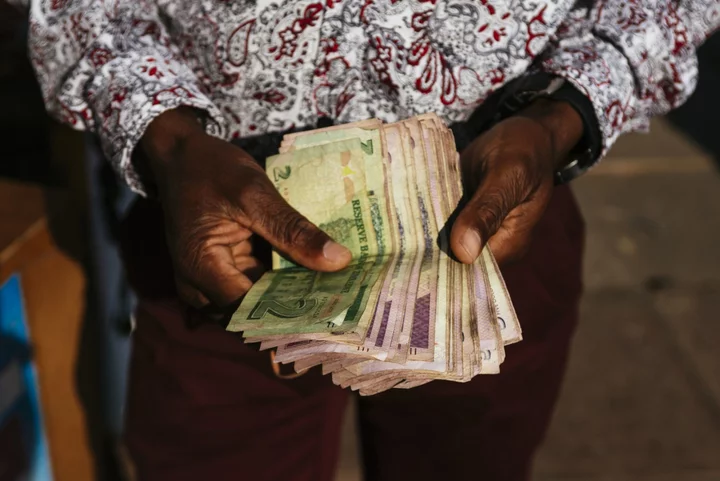Zimbabwe stopped short of free-floating its currency in the battle to end weeks of exchange rate volatility that has fueled the country’s latest economic turmoil.
The Zimbabwe dollar’s crash on both the official and parallel markets has triggered a sixfold rise in stocks, a surge in prices that saw monthly inflation hit double-digits last month, a spike in food prices and the currency post a 30% weekly plunge.
The local currency slumped almost 60% last month alone.
Still, the central bank’s monetary policy committee said the exchange rates will be “market-determined,” falling short of calls made by the International Monetary Fund that’s urged authorities to remove restrictions on the exchange rate.
Under the new rules announced Tuesday, the central bank will sell foreign-exchange to local banks for onward sale to their clients, in an attempt to establish an interbank market.
The role of allocating foreign currency was previously held by the central bank through a weekly auction it has run since June 2020. The easing of the dollar curbs will enable the interbank forex market to become the primary source for foreign-exchange in the economy, the central bank said.
But while a market-determined exchange rate will now be used by the lenders, “parameters” will be maintained, according to Persistence Gwanyanya, an MPC member.
“We will be setting a floor price of the foreign currency every day,” he said by phone. “We have a mechanism at the central bank to determine the market exchange rate policy, but we will now be more guided by the market than ever.”
Read More: Zimbabwe Eases Dollar Curbs, Lifts Rates to Boost Local Currency
A day after the regulations were announced, the country’s 19 lenders on Wednesday purchased $12 million from the central bank in the first sale held.
The weighted average from the sale led to the local unit weaken further to 4,868 Zimbabwe dollars per greenback, setting the exchange rate for transactions in the economy.
Black market rates fell overnight to between 5,900 to 6,700 Zimbabwe dollars per greenback, according to ZimPriceCheck.com and ZimRates websites which monitor exchange rates. The Zimbabwe Stock Exchange halted Thursday trading for a third consecutive day this week, after it breached the 10% limit. The stock market is seen as a safe haven for investors seeking refuge from the currency crash.
Having the central bank supply foreign currency to banks still casts doubt on the Zimbabwe dollar being allowed to free-float, amid signs that managing the exchange rate has failed, according to Lloyd Mlotshwa, the head of research at IH Securities, a Harare-based brokerage. “It implies they will determine the rate,” he said.
Authorities have the tools and measures to prevent any market failure, according to George Guvamatanga, the Secretary for Finance and Economic Development, without providing further details.
“At no time will we allow for market instability,” Guvamatanga said by phone. “We have closed loopholes that were causing structural instability and there will be results on the ground.”
(Updates black-market rates in 11th paragraph)

